© 2025 MJH Life Sciences™ , Patient Care Online – Primary Care News and Clinical Resources. All rights reserved.
Dazed and Confused: 6 CBD Myths and Realities
Help patients sift through the barrage of misinformation, half-truths, and unproven evidence to set them straight about CBD.
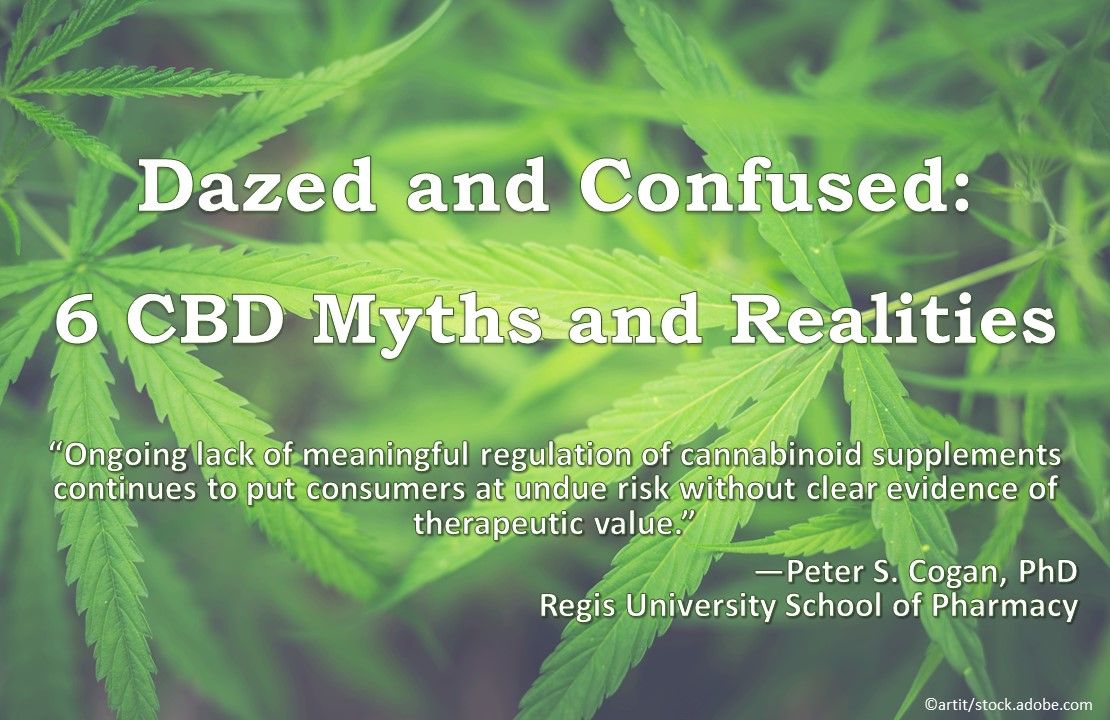
The use of a popular health supplement soars. Favorable results are reported, but high-quality evidence is lacking. A wide range of products are marketed and sold but, with no FDA regulation, the quality of any given product is unknown. Eager patients seek guidance from label claims and the medical advice of family and friends.
This described the widespread and controversial use of over-the-counter glucosamine and chondroitin supplements for treating knee osteoarthritis in the early 2000s. Now it aptly sums up the latest wave in unproven popular pharmacotherapy, cannabidiol (CBD).
Click through the myths and realities of CBD use shown above so you can help patients sift through the current barrage of misinformation, half-truths, and unproven evidence.
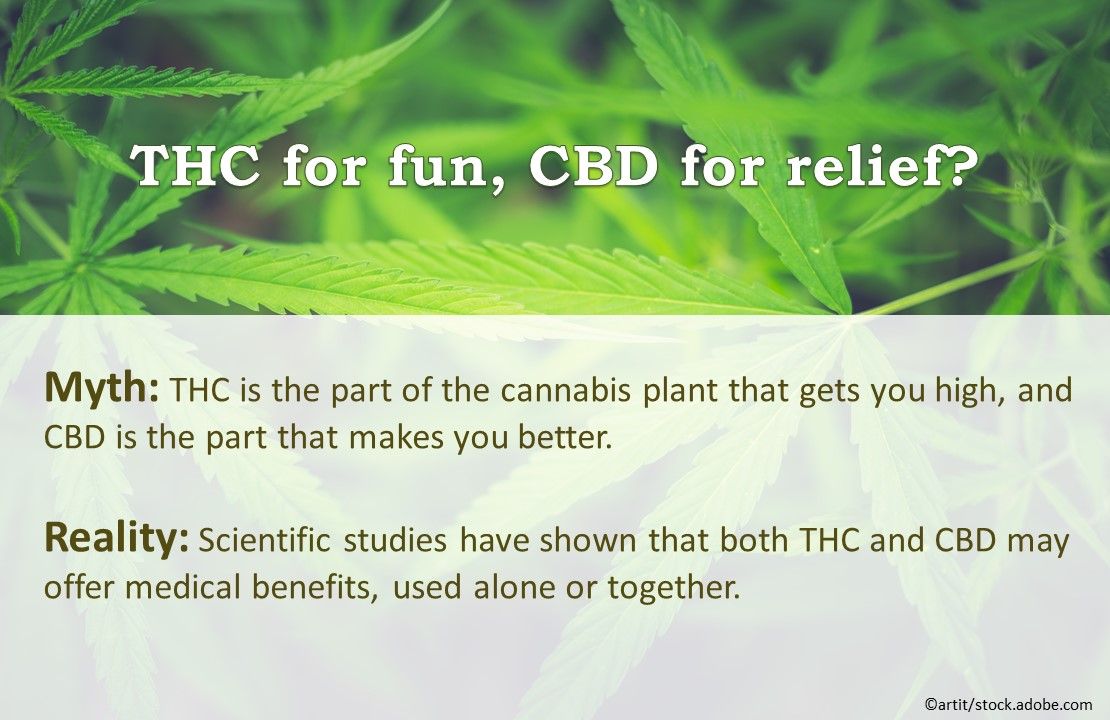
Cannabis synergy. Tetrahydrocannabinol (THC) has been used to treat pain, inflammation, muscle control problems, nausea, anxiety, and various other disorders. Popular uses of CBD include seizures, anxiety, pain, inflammation, schizophrenia, and migraines. These cannabinoids may interact synergistically to enhance each other’s therapeutic effects. CBD modulates the psychoactivity of THC and lowers its unfavorable event profile.
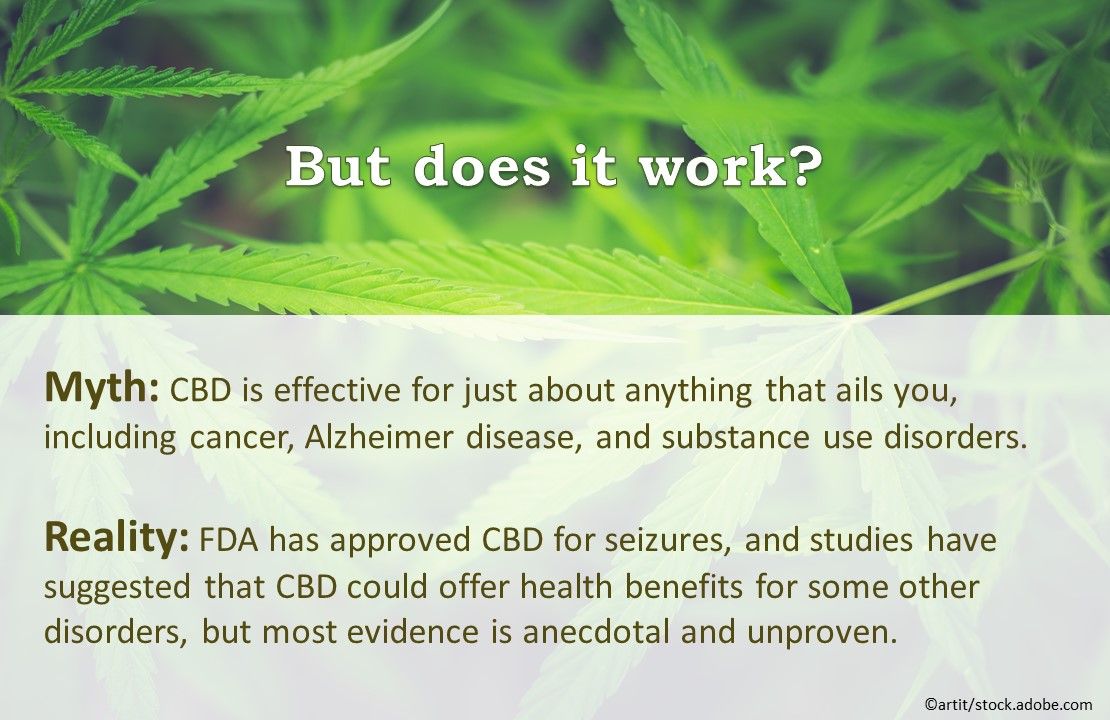
Limited evidence, overblown claims.Epidiolex® (CBD) oral solution was FDA-approved in 2018 for treating seizures associated with 2 forms of epilepsy, Lennox-Gastaut syndrome and Dravet syndrome, in patients aged ≥2 years. For children with Dravet syndrome, taking a liquid form of CBD cut seizures nearly in half. CBD also has been shown to have anxiolytic effects, but for most disorders CBD evidence is limited, marketing claims are overblown, and product quality varies significantly.
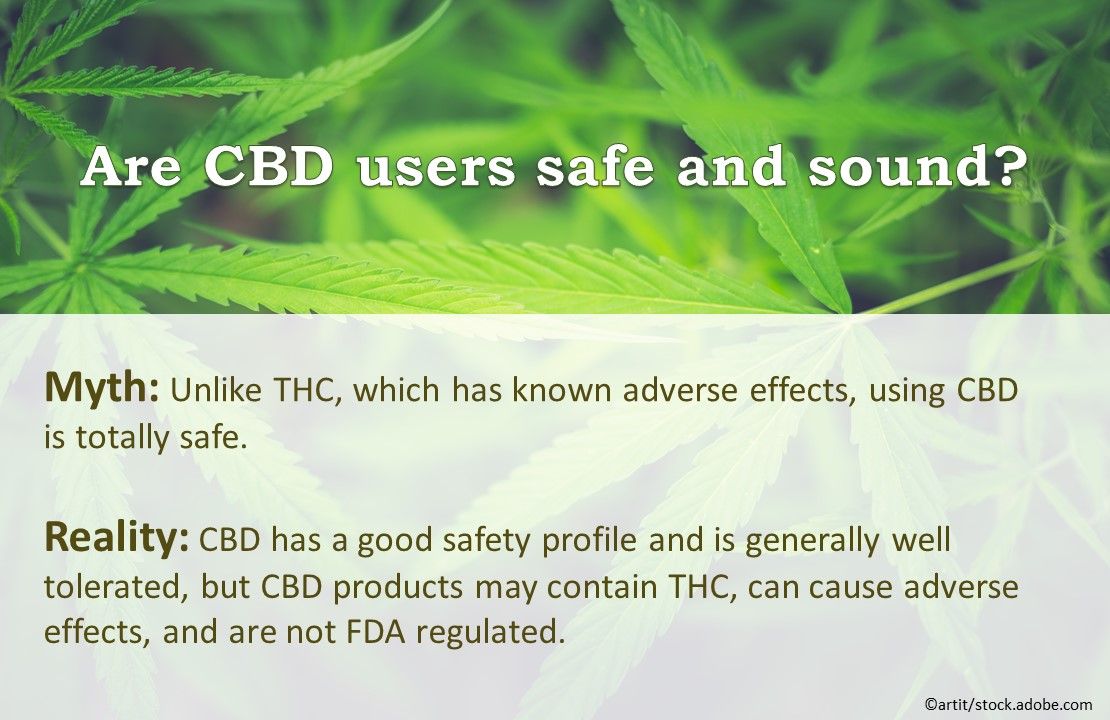
Safe, with caveats. The World Health Organization (WHO) concluded that CBD does not appear to cause harm “in its pure state,” but THC is found in many CBD products. Also, CBD can cause dry mouth, diarrhea, reduced appetite, drowsiness, fatigue, and nausea and can have adverse interactions with other medications (eg, blood thinners). Because CBD is marketed as a supplement rather than a medication and the FDA does not regulate supplements, CBD purity in various products is uncertain.
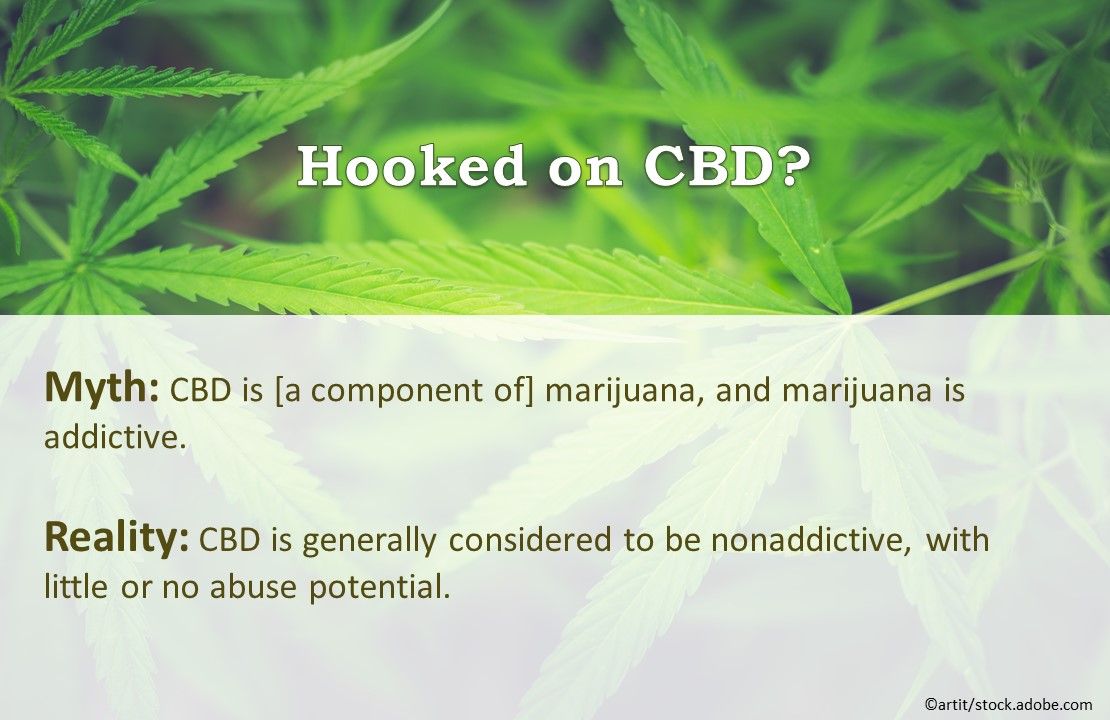
No abuse, no dependence. According to the WHO, “In humans, CBD exhibits no effects indicative of any abuse or dependence potential.” In a recent study, administration of a therapeutic dose of CBD (750â¯mg) showed significantly low abuse potential in a highly sensitive population of polydrug users. With an absence of abuse liability, in fact, CBD has shown potential as pharmacotherapy for alcohol use disorder. However, some CBD oil contains THC, which may cause addiction.
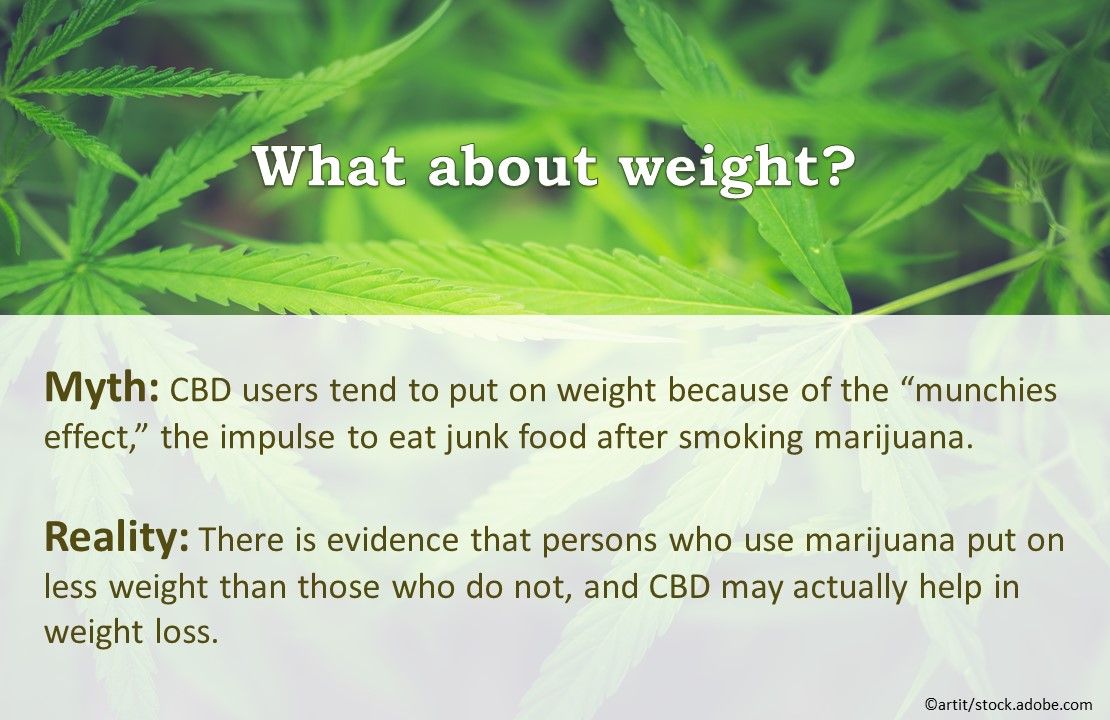
CBD users may lose weight, or gain less. A recent prospective study showed an inverse cannabis–body mass index increase association. In a 2011 rat study, intraperitoneal injections of CBD produced a significant decrease in body weight gain. In another rat study, CBD led to a significant reduction in food intake. In a 2013 study, researchers proposed that THC or a THC/CBD combination drug may produce weight loss and may be useful for treating obesity and its complications. More studies are needed, however.
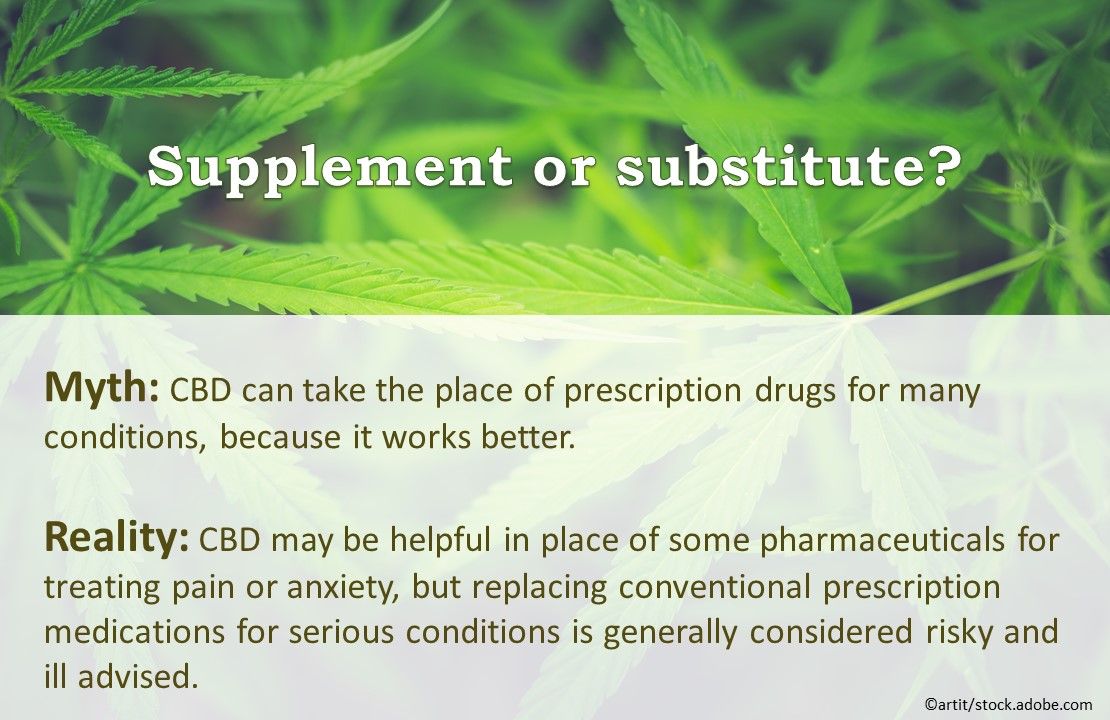
CBD used to replace Rx drugs. Patients are using CBD as a substitute for prescription drugs. In a recent study, 57% of respondents reported using both CBD and medications, but 42% used CBD alone to treat anxiety, insomnia, joint pain, and other problems. About 52% indicated that CBD products are “more effective” or “much more effective” in relieving medical conditions. The risks of replacing a proven conventional treatment with an alternative unproven therapy have not been well-studied, but CBD as adjunctive therapy has gained more support.
